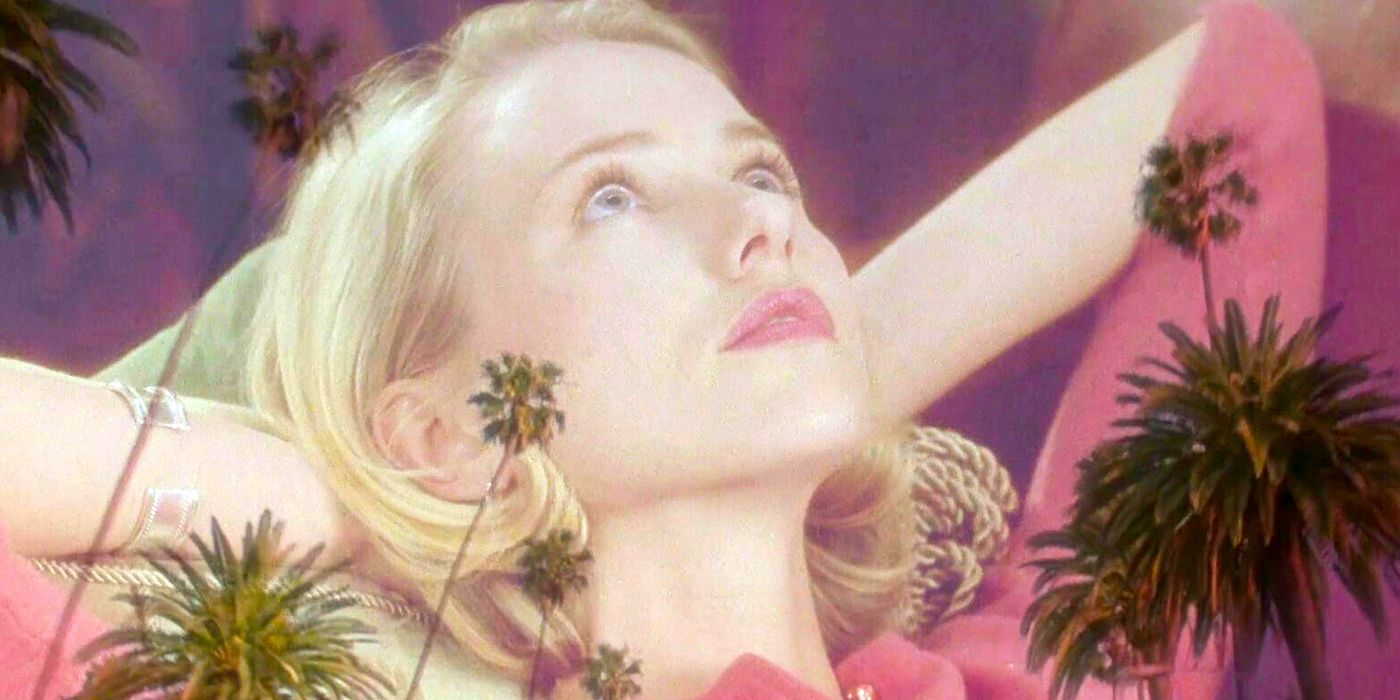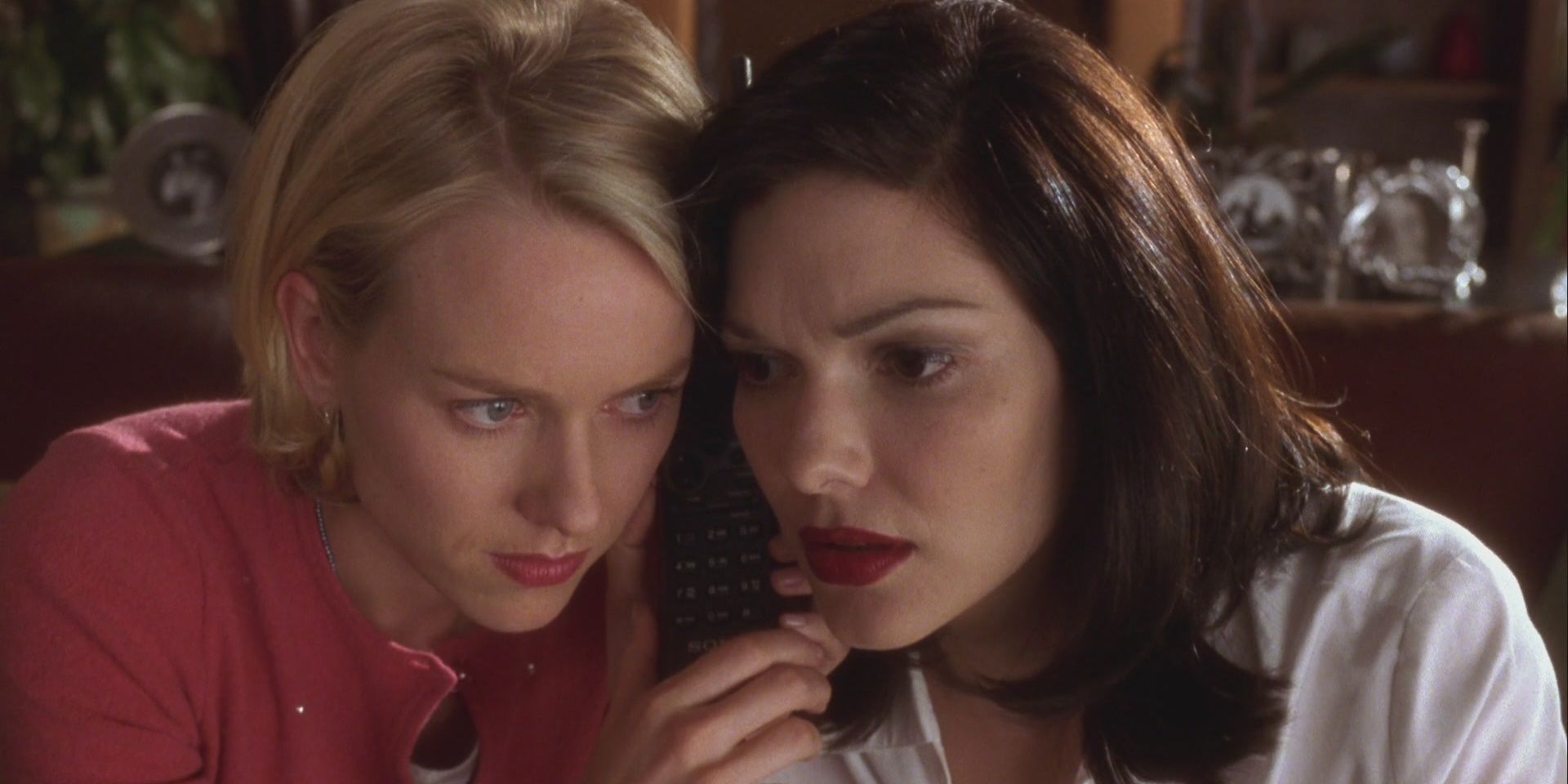
In a 2002 DVD release of Mulholland Drive, David Lynch included an insert containing ten clues to help decipher the film’s narrative. Lynch is famously tight-lipped about the meanings behind his work, including the many mysteries of Twin Peaks or Lost Highway, making the list a real treat for fans who’ve remained eager to interpret the events of Lynch's surrealist, neo-noir over the decades since its initial release in 2001.
David Lynch’s Mulholland Drive was originally pitched as a series for ABC, but the network executives weren’t sold on the pilot, which exceeded its one-hour allotted time slot by 37 minutes. Ultimately, ABC abandoned the project. That’s when Lynch decided to turn Mulholland Drive into a feature. The film stars Naomi Watts as the bright-eyed Betty and Laura Harring as Rita. After a car accident leaves Rita with temporary amnesia, she stumbles upon the apartment where Betty is staying. As reality and dreams collide, the story becomes ever more complex, resulting in decades of analysis and interpretations by fans who’ve watched countless times in search of the film’s true meaning.
Given that Lynch is notoriously known for refusing to offer up explanations of his work, many have speculated over whether some or all of the DVD clues might be red herrings. But according to Lynch, the clues are real. The Mulholland Drive director confirmed as much in a 2018 interview with Vulture. In the interview, Lynch also explained how the list was originally only meant to exist in France. Mulholland Drive was an instant success in the country and this led to the uncharacteristic move by Lynch of providing the list of clues. “Normally I would’ve said no, but — and I don’t know why — I came up with things that people could think about when they watched it,” Lynch told the magazine. Thanks to the internet, the clues quickly spread to fans everywhere. The list, titled “David Lynch’s 10 Clues to Unlocking This Thriller,” is as follows:
- Pay particular attention in the beginning of the film: At least two clues are revealed before the credits.
- Notice appearances of the red lampshade.
- Can you hear the title of the film that Adam Kesher is auditioning actresses for? Is it mentioned again?
- An accident is a terrible event—notice the location of the accident.
- Who gives a key, and why?
- Notice the robe, the ashtray, the coffee cup.
- What is felt, realized and gathered at the Club Silencio?
- Did talent alone help Camilla?
- Note the occurrences surrounding the man behind Winkie’s.
- Where is Aunt Ruth?

Many people have commented on the clues from the jitterbug contest in the opening scene. Immediately following that scene, before the opening credits, the film switches to the perspective of someone in the bedroom of what appears to be apartment #17. It’s the same bed with red sheets as the bed seen later in the scene where Betty & Rita go into the apartment - and the same bed seen again when Betty/Diane is sleeping there. This seems to confirm that part of the story is a dream. Someone (probably Diane) gets into bed, closes their eyes, and the opening credits begin with the car on Mulholland Drive. Of course, that's just one example of how the first clue might be interpreted.
By providing a list of clues rather than an outright explanation, Lynch keeps the meaning of the film open-ended. Until Lynch confirms any of the explanations proposed by fans—which is unlikely to happen—the true meaning behind Mulholland Drive remains a mystery. There are no definite answers here, only more questions. Any meaning derived from them is ultimately determined by one's individual perspective and interpretation of the clues.
Like most of David Lynch’s work, the movie pulls inspiration from the subconscious mind — the images one dreams in sleep, and the waking daydreams that are fantasies. Dreams rarely unfold in a linear fashion. They appear in pieces, jumbled up alongside flashes of memory. A single dream — or nightmare — can be interpreted in countless ways, and our subconscious musings are rarely understood completely by the conscious, waking mind. David Lynch’s work tries to capture that experience; audiences may never know exactly what Mulholland Drive means to Lynch, but these clues at least offer a glimpse. Part of the appeal of movies like these is the puzzle they offer to audiences: the challenge to try and understand the competing stories that exist within the film, along with the multiple identities of its characters. And that’s what keeps fans coming back to Mulholland Drive again and again.
from ScreenRant - Feed https://ift.tt/3btTHjW
via IFTTT







0 comments:
Post a Comment